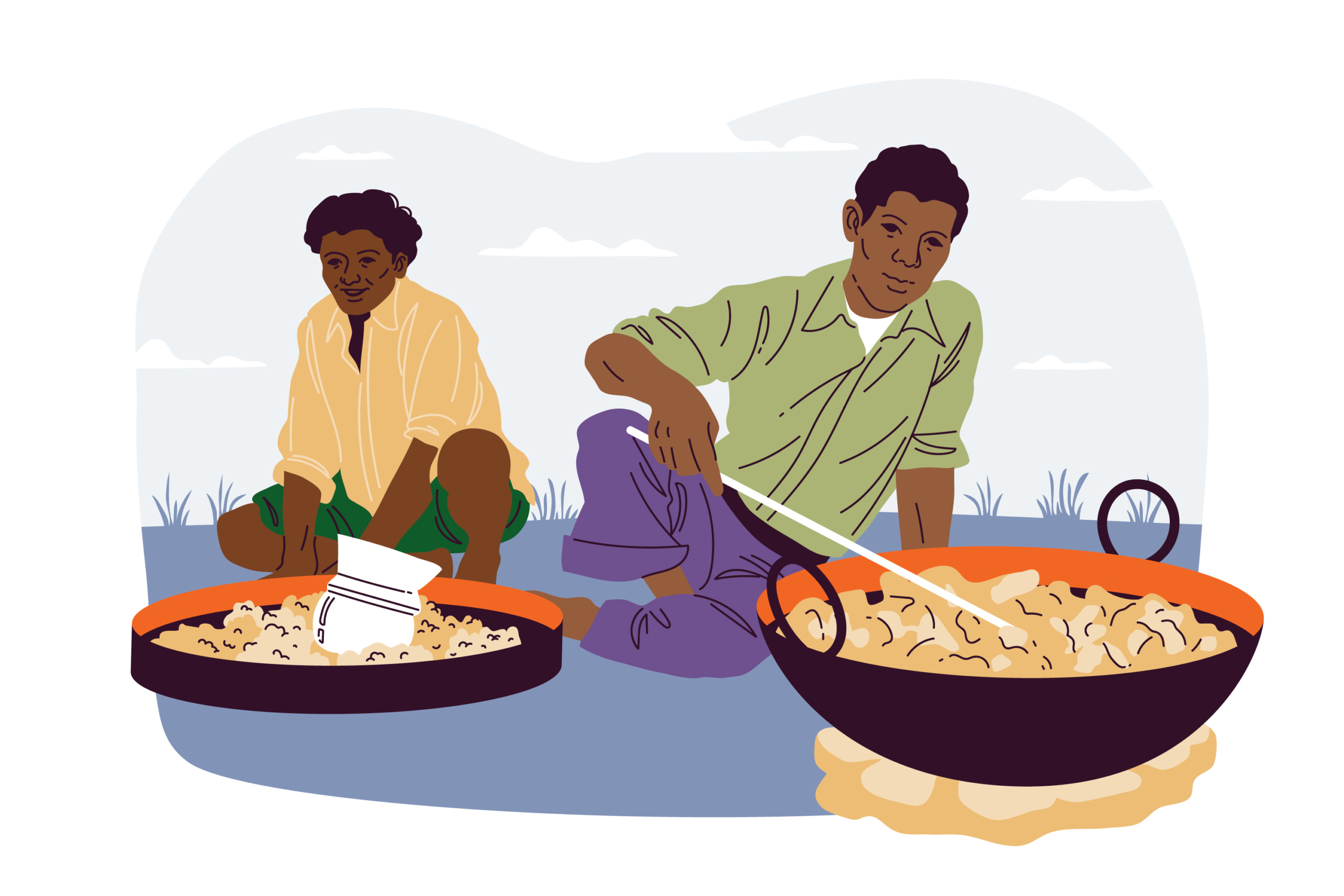Agushie: The Secret Ingredient to A Truly Authentic Ghanaian Feast
You’ve probably never heard of it before, and that’s okay. In fact, I hadn’t either until I stumbled upon this delightful, lesser-known ingredient while scouring the depths of West African cuisine. But trust me when I say, once you discover agushie, you’ll wonder how you ever lived without it.
So, let’s get the basics out of the way first: Agushie is the Ghanaian name for what the rest of the world knows as melon seeds. Yes, the same seeds that you might throw out without a second thought after devouring a juicy watermelon, are used in the rich, savory stews and soups of Ghana. But here’s the catch—agushie is so much more than just the seeds of a melon. It’s a flavorful, nutrient-packed magic ingredient that makes everything it touches just a little bit more… well, amazing.
If you’ve ever had the pleasure of trying agushie stew, you know exactly what I’m talking about. If you haven’t—well, buckle up, my friend, because you’re about to embark on a culinary journey you’ll never forget.
Agushie: Not Your Average Seed
Now, I know what you’re thinking. “Seeds? Really? Are we talking about those hard, inedible things I pick out of my fruit salad?” Oh, how wrong you are. Agushie is different. While it may come from a melon, the seeds themselves have a unique flavor and texture that set them apart from any other seed you’ve encountered. Ground into a paste, agushie adds a creamy, slightly nutty richness to dishes. It’s the type of ingredient that, when combined with the right spices and veggies, takes a dish from “eh” to “wow!” in the blink of an eye.
In English, agushie is typically referred to as melon seeds or pumpkin seeds—but, trust me, calling it by either of those names doesn’t do it justice. It’s like calling honey “just sugar” because they both taste sweet. Sure, they’re related, but they’re worlds apart in terms of flavor and complexity.
Agushie Benefits: Why You Should Love It
You may have already fallen in love with agushie’s flavor (or, at least, you’re on your way), but here’s the kicker—it’s not just delicious; it’s good for you too. Agushie is packed with nutrients like magnesium, protein, and zinc. This little seed can help boost your immune system, support digestion, and keep your skin looking fresh and glowing. So, every time you scoop up a hearty spoonful of agushie stew, you’re not just savoring a meal—you’re nourishing your body.
Beyond its nutritional value, agushie also has a rich cultural history. Used in traditional Ghanaian dishes for generations, it’s a symbol of home, comfort, and togetherness. It’s often found at family gatherings, celebrations, and of course, on the table for Sunday lunch. You can’t have a true Ghanaian feast without agushie. It’s like trying to bake a cake without flour—it just doesn’t work.
Agushie Stew: The Heart and Soul of Ghanaian Cuisine
Let’s talk about agushie stew, the dish that really lets agushie shine. If you’ve never had the pleasure of tasting this hearty, flavorful stew, then you’re in for a treat. It’s a dish that combines agushie, tomatoes, onions, and a variety of meats, often including goat, beef, or fish, simmered together in a rich, spiced broth. Every bite is like a warm hug from your grandmother, who knows exactly how to make you feel at home, no matter where you are in the world.
Making agushie stew isn’t rocket science, but it’s an art form. The secret lies in the perfect balance of spices. There’s a certain je ne sais quoi about Ghanaian stews that comes from the careful combination of ingredients—each spice adding its own note, like a musician in an orchestra. The heat of chili, the earthiness of ginger, and the tang of onions all come together in perfect harmony. And agushie? It’s the conductor, making sure everything stays together and works as one.
Now, if you’re feeling inspired and want to try making agushie stew at home, here’s a basic rundown of what you’ll need:
- Agushie (melon seeds) – Ground into a fine paste, this is the base of your stew.
- Meat (goat, beef, or fish) – This adds the richness and depth of flavor that stews are known for.
- Tomatoes, onions, and peppers – For that savory, tangy base that makes your mouth water just thinking about it.
- Palm oil – A key ingredient in many Ghanaian dishes, this oil gives the stew its characteristic red color and adds a unique richness.
- Spices – Think ginger, garlic, chili, and seasoning cubes to tie it all together.
The trick is to let the stew simmer long enough to allow all the flavors to meld together, making every bite a perfect explosion of taste. Serve it with a side of banku, fufu, or even rice, and you’ve got yourself a meal that’s truly fit for a king—or queen.
The Versatility of Agushie
One of the things I love about agushie is its versatility. Sure, you can make a delicious stew with it, but you can also use it in a variety of other ways. Want to make agushie soup? Go ahead. Add it to your stir-fries for an unexpected twist. You can even sprinkle it on top of salads for a crunchy, flavorful garnish. Agushie is like that friend who can fit into any group and make it better.
If you’re in the mood for something lighter, you could make a refreshing agushie dip or use the paste as a spread on bread. The possibilities are endless, and the best part? Agushie is as adaptable as your mood.
The Cultural Importance of Agushie
In Ghana, food isn’t just about sustenance. It’s about culture, connection, and heritage. And agushie, in all its forms, is a central part of that experience. Whether it’s the stew you make to celebrate a family milestone or the dish you prepare when friends come over, agushie brings people together. It’s the type of dish you make when you want to impress, when you want to share a piece of your culture and your heart with those you care about.
Food in Ghana isn’t just for eating; it’s for celebrating life’s joys and consoling one another through life’s trials. And agushie is the star of many of those moments.
Agushie: The Underrated Hero
So, the next time you stumble upon a recipe that calls for agushie—or even better, if you’re lucky enough to have someone cook it for you—take a moment to appreciate this unsung hero of Ghanaian cuisine. Agushie is more than just a seed. It’s a symbol of richness, culture, and the kind of food that feels like home. And trust me, once you try it, you’ll never look at melon seeds the same way again.
In the end, agushie is not just about eating; it’s about savoring life—one flavorful bite at a time.


